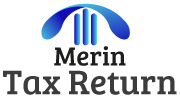Understanding the Average Accountant Charges for Tax Returns in the UK
Tax returns are an essential part of financial life for individuals and businesses in the UK. Whether you’re self-employed, a business owner, or have multiple income streams, filing a tax return can be a complex and time-consuming process. Hiring a professional accountant can alleviate this burden, but one of the most common questions people have is: How much does an accountant charge for a tax return in the UK?
In this blog, we’ll explore the average costs of hiring an accountant for tax returns, the factors that influence pricing, and tips for finding the right accountant for your needs. We’ll also discuss the benefits of hiring an accountant, how to reduce costs, and future trends in the accounting industry.
Why Hire an Accountant for Your Tax Return?
Before diving into costs, it’s important to understand why hiring an accountant is often worth the investment. Here are some key reasons:
a) Expertise and Accuracy
Accountants are trained professionals who understand the intricacies of the UK tax system. They stay up-to-date with the latest tax laws and regulations, ensuring your tax return is accurate and compliant. This expertise minimizes the risk of errors, which can lead to penalties or audits.
b) Time-Saving
Preparing a tax return can be a time-consuming task, especially for self-employed individuals or business owners who have to track income, expenses, and deductions. An accountant can handle this efficiently, freeing up your time to focus on other priorities.
c) Maximizing Deductions
A professional accountant can identify allowable expenses and deductions that you might miss. This can significantly reduce your tax liability and potentially save you money.
d) Avoiding Penalties
Errors or late submissions can result in fines from HMRC. An accountant ensures your tax return is submitted on time and accurately, helping you avoid these costly penalties.
e) Peace of Mind
Knowing that your taxes are in expert hands reduces stress and gives you peace of mind. You can rest assured that your financial affairs are being handled correctly and efficiently.
Average Accountant Charges for Tax Returns in the UK
The cost of hiring an accountant for a tax return varies widely depending on several factors, including the complexity of your finances, the type of tax return, and the accountant’s experience. Below, we break down the average costs for different types of tax returns:
Self-Assessment Tax Returns (Individuals)
For individuals filing a self-assessment tax return, the average cost ranges from £150 to £300. This typically includes:
- Basic tax return preparation.
- Submission to HMRC.
- Advice on allowable expenses and deductions.
Factors that may increase costs:
- Multiple income streams (e.g., rental income, dividends, or foreign income).
- Capital gains tax calculations.
- Complex expenses or deductions.
Self-Employed Tax Returns
Self-employed individuals often have more complex tax affairs, leading to higher fees. The average cost ranges from £200 to £500, depending on:
- The volume of transactions.
- The need for bookkeeping services.
- The complexity of expenses and deductions.
Partnership Tax Returns
Partnerships require additional work, as each partner must file their own tax return alongside the partnership return. Average costs range from £500 to £1,500, depending on the number of partners and the complexity of the partnership’s finances.
Limited Company Tax Returns
For limited companies, accountants typically handle both corporation tax returns and annual accounts. The average cost ranges from £500 to £2,000, depending on:
- The size of the company.
- The volume of transactions.
- The need for additional services like payroll or VAT returns.
High Net Worth Individuals
High net worth individuals with complex financial affairs, such as multiple properties, investments, or overseas income, can expect to pay £1,000 to £5,000 or more for their tax return.
Factors Influencing Accountant Charges
Several factors can affect how much an accountant charges for a tax return. Understanding these can help you budget effectively and choose the right professional:
Complexity of Your Tax Affairs
The more complex your financial situation, the higher the fee. For example:
- Multiple income streams.
- Rental properties.
- Capital gains or losses.
- Foreign income or assets.
Location
Accountants in major cities like London or Manchester often charge higher rates than those in smaller towns or rural areas.
Experience and Qualifications
Highly experienced accountants or those with specialized qualifications (e.g., chartered accountants) typically charge more.
Additional Services
Many accountants offer bundled services, such as bookkeeping, payroll, or VAT returns, which can increase the overall cost.
Turnaround Time
If you need your tax return completed urgently, you may incur additional fees for expedited service.
How to Find the Right Accountant
Choosing the right accountant is crucial for both cost-effectiveness and quality of service. Here are some tips:
Check Qualifications
Look for accountants who are members of recognized professional bodies, such as:
- The Association of Chartered Certified Accountants (ACCA).
- The Institute of Chartered Accountants in England and Wales (ICAEW).
- The Chartered Institute of Taxation (CIOT).
Read Reviews and Testimonials
Online reviews and word-of-mouth recommendations can provide insights into an accountant’s reliability and expertise.
Compare Quotes
Request quotes from multiple accountants to compare prices and services. Be sure to ask what’s included in the fee.
Ask About Fixed Fees
Some accountants offer fixed fees for specific services, which can help you avoid unexpected costs.
Consider Communication
Choose an accountant who communicates clearly and is responsive to your questions.
DIY vs. Hiring an Accountant
While hiring an accountant has clear benefits, some individuals may consider preparing their own tax return to save money. Here’s a comparison:
- a) DIY Tax Returns
- Pros: Lower cost; suitable for simple tax affairs.
- Cons: Time-consuming; risk of errors; potential missed deductions.
- b) Hiring an Accountant
- Pros: Expertise; time-saving; peace of mind.
- Cons: Higher cost; may not be necessary for very simple tax affairs.
For most people, especially those with complex finances, the benefits of hiring an accountant outweigh the costs.
Tips for Reducing Accountant Fees
If you’re concerned about costs, here are some ways to reduce your accountant’s fees:
- Organize Your Records: Provide clear and organized financial records to reduce the time your accountant spends on your return.
- Use Accounting Software: Tools like QuickBooks or Xero can simplify bookkeeping and reduce the workload for your accountant.
- Bundle Services: If you need multiple services (e.g., tax returns and payroll), bundling them with one accountant can save money.
- Plan Ahead: Avoid last-minute requests, which may incur higher fees.
The Future of Accountant Charges
The accounting industry is evolving, with technology playing an increasingly important role. Here are some trends that may impact accountant charges in the future:
- Automation: Software and AI are streamlining tasks like bookkeeping and data entry, potentially reducing costs.
- Remote Services: Many accountants now offer remote services, which can be more cost-effective than in-person meetings.
- Transparency: More accountants are offering fixed fees and transparent pricing structures.
Conclusion
Hiring an accountant for your tax return in the UK is a smart investment for most individuals and businesses. While costs vary depending on your specific needs, the average fee for a self-assessment tax return ranges from £150 to £300, with higher fees for more complex cases. By understanding the factors that influence pricing and following the tips outlined in this blog, you can find an accountant who offers excellent value for money.

